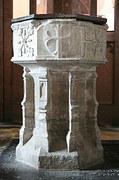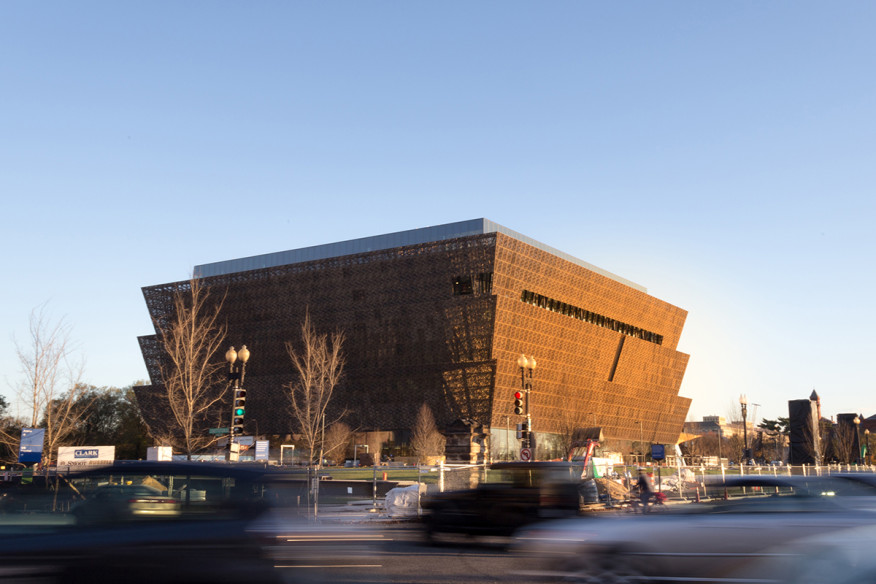I am a Roman Catholic Christian who happens to have been born in the United States of America 51 years ago. I am also a theologian who specializes in ethics, the discipline that attempts to understand the moral implications of our faith as followers of Jesus Christ, who is the ultimate revelation of who God is, how God acts, and what God’s will is for us on earth as it is in heaven. This means that I am a “theologian without borders.” Or at least I am called to try to be, as are all Christians, by the grace of God. For this is what we pledged—or have pledged on our behalf if it was done when we were infants—in our baptism. This is something we have in common as Christians, regardless of the disagreements among us due to our Republican or Democrat affiliation, our rural or urban location, our blue or white collar work, our formal education or lack thereof, and the other walls that sadly seem to divide the body of Christ at this time.
I am also a theologian who specializes in ethics, the discipline that attempts to understand the moral implications of our faith as followers of Jesus Christ, who is the ultimate revelation of who God is, how God acts, and what God’s will is for us on earth as it is in heaven. This means that I am a “theologian without borders.” Or at least I am called to try to be, as are all Christians, by the grace of God. For this is what we pledged—or have pledged on our behalf if it was done when we were infants—in our baptism. This is something we have in common as Christians, regardless of the disagreements among us due to our Republican or Democrat affiliation, our rural or urban location, our blue or white collar work, our formal education or lack thereof, and the other walls that sadly seem to divide the body of Christ at this time.
In the Roman Catholic Rite of Baptism, the celebrant says to the parents and godparents:
You have come here to present this child for baptism. By water and the Holy Spirit he (she) is to receive the gift of new life from God, who is love.
On your part, you must make it your constant care to bring him (her) up in the practice of the faith. See that the divine life which God gives him (her) is kept safe from the poison of sin, to grow always stronger in his (her) heart.
If your faith makes you ready to accept this responsibility, renew now the vows of your own baptism. Reject sin; profess your faith in Christ Jesus. This is the faith of the Church. This is the faith in which this child is about to be baptized.
The Church into which the child is baptized is universal. That baptism is recognized by most Christian denominations. This sacrament initiates the baptized person into a community that transcends the mountains and oceans, the valleys and the rivers, as well as any human-made borders, walled or not.
In a second option for the rite, the celebrant goes on to ask the parents and godparents, “Do you reject sin, so as to live in the freedom of God’s children?” Not merely the freedom of the United States or any other nation, but the freedom granted to all persons by their Creator. Such freedom is a responsibility, in addition to a right. The celebrant subsequently asks, “Do you reject the glamour of evil, and refuse to be mastered by sin?”
This isn’t only a Catholic thing. Many of my friends are United Methodists, and I think their Baptismal Covenant Service sheds helpful light on what I’m trying to get at. In it, the pastor asks the parents and other sponsors:
On behalf of the whole Church, I ask you:
Do you renounce the spiritual forces of wickedness, reject the evil powers of this world, and repent of your sin?
Do you accept the freedom and power God gives you to resist evil, injustice, and oppression in whatever forms they present themselves?
Do you confess Jesus Christ as your Savior, put your whole trust in his grace, and promise to serve him as your Lord, in union with the Church which Christ has opened to people of all ages, nations, and races?
In their baptism, therefore, Christians pledge allegiance to Jesus Christ, becoming part of a community of followers that is open to all people, everywhere, regardless of their age, nationality, sex, abilities, or skin color. And we pledge, by the grace of God, to resist evil, injustice, and oppression in whatever forms they surface. Evil, injustice, and oppression are names for individual/personal and systemic/structural/social sins, including: racism, sexism, egoism, nationalism, militarism, classism, xenophobia, homophobia—indeed, anything, in addition to direct abortion, that fails to recognize and respect the God-given sanctity of another human created in God’s image—but also environmental harms, which Saint Pope John Paul II, Pope Emeritus Benedict XVI, and Pope Francis agree fail to respect the inherent goodness of God’s creation. As Pope Francis repeatedly emphasizes in Laudato Si’, everything is interrelated.
During this time, I reaffirm that baptismal pledge, and I invite my fellow Christians to do so. The words from these rites are often said but rarely really contemplated and realized—including by myself. For they aren’t only words. Not to me. At least I don’t want them to be. And I need the church, the community of believers to hold me to this pledge and to help me to follow through with it. And I will try to do likewise for them. Baptism is an allegiance that trumps any other loyalties whenever they come into conflict with it. Let’s pledge allegiance to Jesus Christ, and in doing so commit to doing what is good and right for all of our brothers and sisters, especially those who are vulnerable, who have not had a voice, and who are most in need, but who too are created in God’s image. After all, we really are each other’s keepers.



I have had the thought, these past few days, on just how disastrous a disservice the “five non-negotiables” is to the church and to her theology. I think that we need to be constantly talking about the wide range of #nonnegotiables – and the ways that “intrisically evil acts” has now become “the non-negotiables” – precisely because of our baptism. Thanks for this.
Thanks, Jana. I agree.